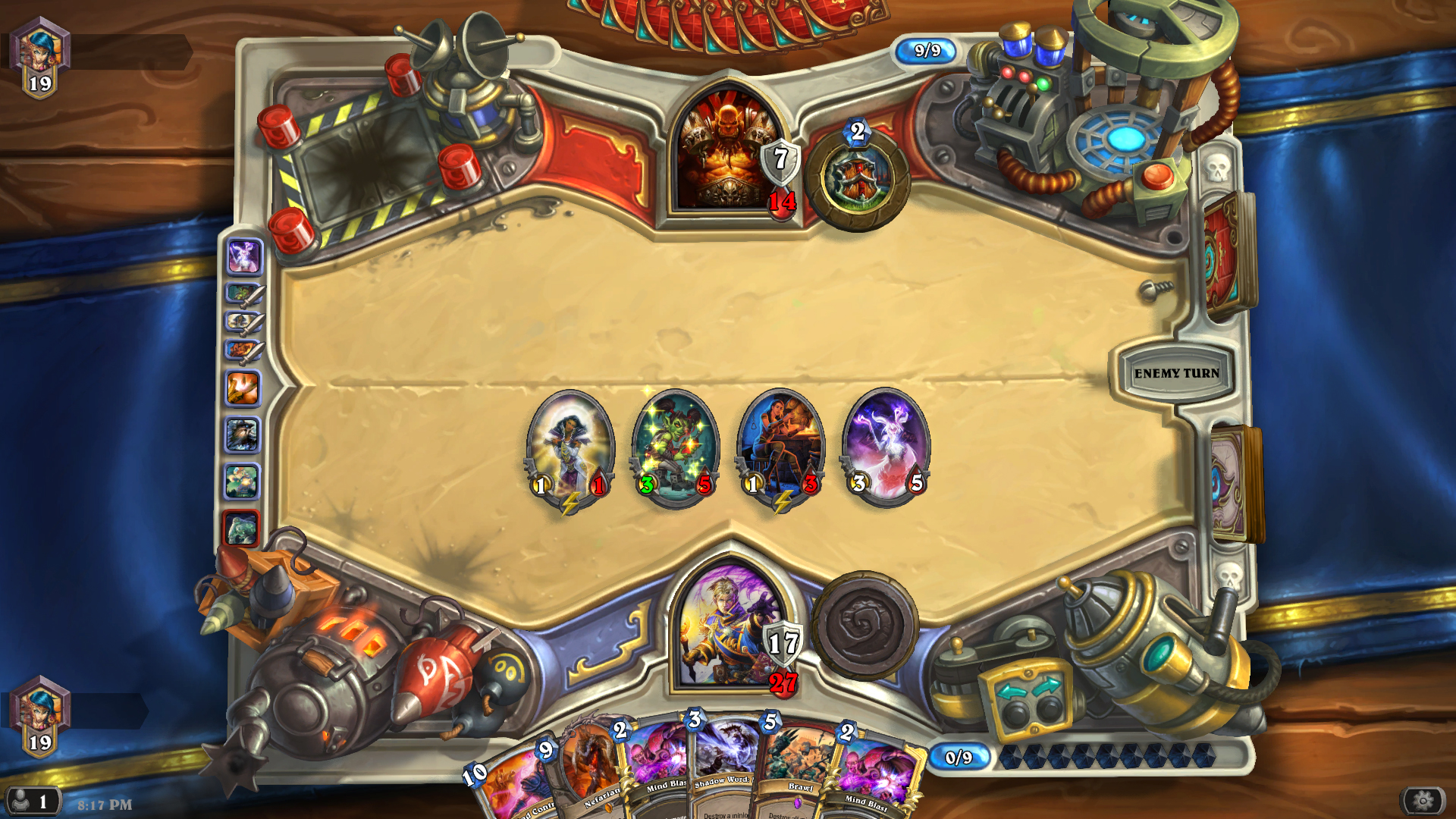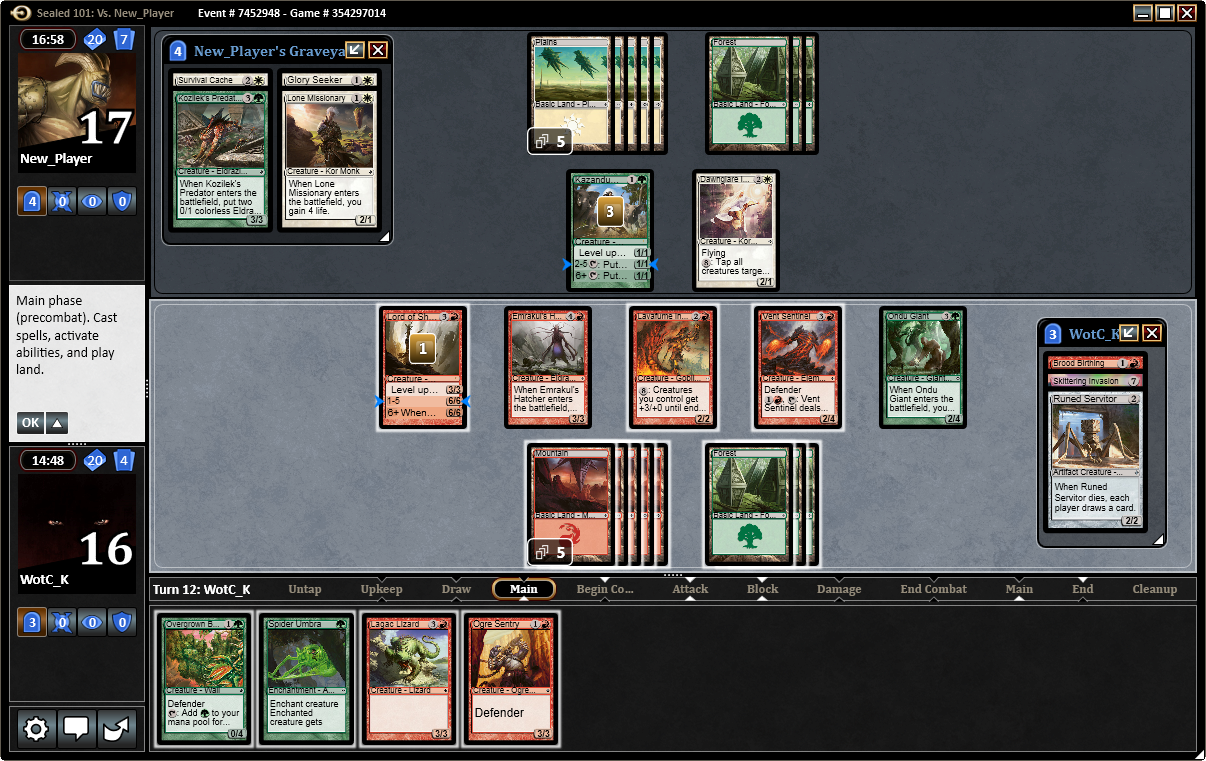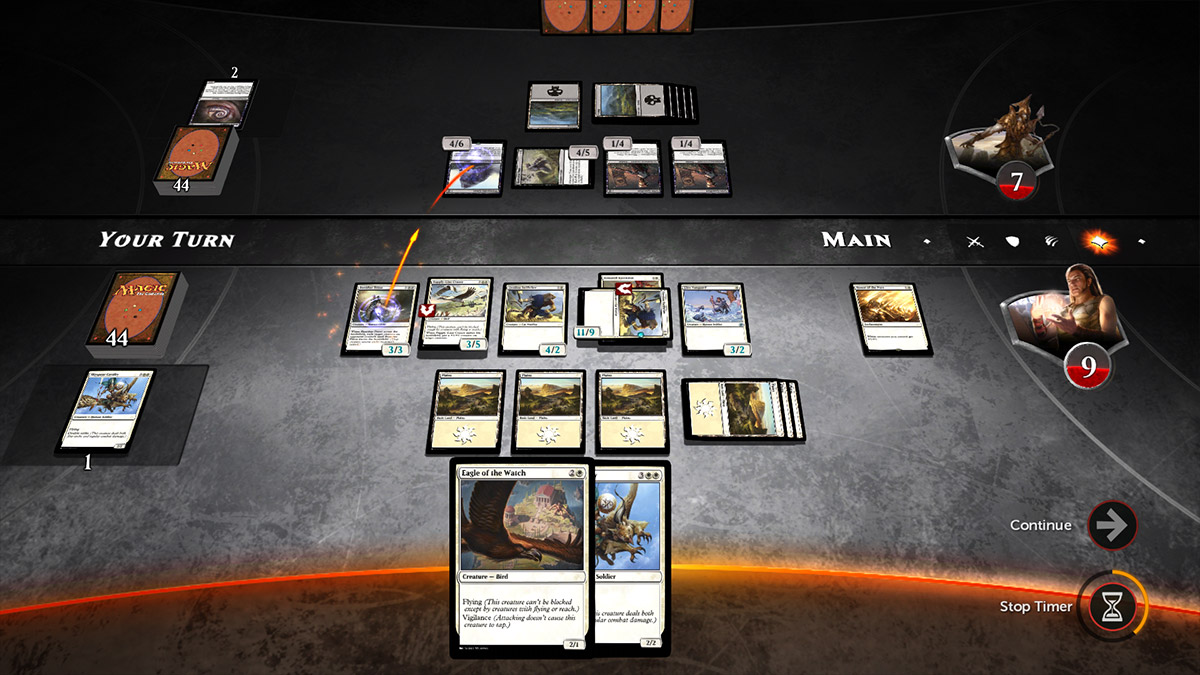Brian Kibler on Magic’s battle to catch up with Hearthstone

I started playing Magic the Gathering over twenty years ago, when I was a thirteen year-old kid in the seventh grade. Since then, playing Magic has taken me to dozens of countries across five continents, and has been responsible for not only my career, but also virtually all of my closest friendships. I am one of the leading money winners in Magic tournament history, and in 2010 I was inducted into the Magic Pro Tour Hall of Fame.
And yet when I sit down to play a card game today, it isn’t going to be Magic. It’s going to be Hearthstone.

In addition to his illustrious record as an MTG pro, Brian was lead designer on the World of Warcraft Trading Card Game, which was the paper precursor for Hearthstone. He is also currently senior game designer on Solforge. You can read more of his writing at bmkgaming and see him stream Hearthstone here. I hope you like dragons.
I love Magic. I think it’s the greatest game ever made, even to this day. It created the entire collectible gaming category that has taken the world by storm, and spawned any number of incredibly successful imitators, from Pokemon to Yu-Gi-Oh to Hearthstone. But while its descendants have evolved to take advantage of the new digital revolution in gaming, Magic has failed to keep up with times.
It’s strange that things have gotten to this point, because much like Magic was the first CCG, it was also among the first games to introduce the idea of selling digital objects. Back when Magic Online was released in 2002, the application name was “MODO”, which stood for “Magic Online Digital Objects”. To assuage the fears of a community that wasn’t accustomed to paying real money for virtual goods—as well as to justify charging the same full retail price for digital booster packs—Magic Online included a redemption program that allowed players to exchange a full set of cards online for that same set in paper. This decision was one of many made to anchor Magic Online as closely as possible to the physical game, a philosophy that has caused significant problems over the years.
The most recent foray into the digital space—Magic Duels: Origins—has done away with the same strict tethering. Not only has it embraced the free-to-play philosophy of other games in the digital CCG space, and allowed players to earn cards rather than purchase them, but it has a response timer system that has something more a videogame feel than the sometimes ponderous pace of paper Magic (and thus Magic Online).
These modifications, among others, have led to Duels being a big success at bringing new players into the game. But for established players like me, it doesn’t have the same appeal. So much of what has kept me in Magic over the years is the competition of tournament play, and the vast open-endedness of deck building, neither of which Duels offers in a manner comparable to paper Magic or Magic Online. A lot of people have asked me while I’m streaming Hearthstone on Twitch if I’m going to stream Duels some time too, and I tell them that I just don’t find the same enjoyment in a watered down version of my favorite game.
Magic is an incredible game, but right now, it just isn't a very good videogame.
If Magic wants to keep up with the kids these days, and to keep its old time fans like me engaged in this era of digital gaming, it needs to find a middle ground between Magic Online and Duels. Here are the three biggest area that Magic’s digital offerings need to improve to find a firm footing in today’s online gaming marketplace.
Keep up to date with the most important stories and the best deals, as picked by the PC Gamer team.

Convenience
I can log on to Hearthstone and play a ranked or arena game at almost any time of day, and if I only have time for that one game, that’s okay. On Magic Online, signing up for any tournament is a serious commitment of several hours, and you can’t just leave in the middle without giving up your entry fee and possible prizes. Magic needs to adjust its online competitive offerings to make them more convenient, especially for its older fans who may not be able to block off hours at a time to play. Duels simply has no real outlet for competitive play.

Stream Friendliness
It’s Twitch’s world now. The rest of us are just living in it. Online streaming is the way that an entire generation discovers and interacts with games, and it isn’t going away. Magic Online not only suffers from long downtime between matches, as mentioned above, but also an interface that is very difficult for anyone but the most experienced players to follow. Duels is a step in the right direction, with a smooth game flow, animations, and sound effects that people don’t just turn off by default. I’d do away with the simulated perspective of the game board for more of a top-down view, since cards are already hard enough to read when the board gets cluttered. If people can’t tell what’s going on, they won’t watch. If they don’t watch, they’re unlikely to start playing.

Cost
This may be where Magic Online is hamstrung the most, because many players have invested a great deal to build their collections. Shifting the basic economy away from a same-as-physical price model would massively undermine the confidence of the existing player base, but something has to be done. You can play Hearthstone arena for just two dollars, or for free with in-game gold, while a Magic draft is almost fifteen dollars retail on Magic Online. Duels is much friendlier price-wise, with the ability to earn all of the content for free in the new release, but lacks the same competitive appeal as either Magic Online or Hearthstone.
Magic is an incredible game, but right now, it just isn’t a very good videogame. But if Wizards of the Coast can make it faster, prettier, and cheaper, it just might be good enough to bite off a chunk of huge digital card game audience that has had its appetite whet by Hearthstone and is hungry for more.

